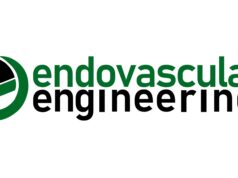 According to a recent study, patients with cancer under immune checkpoint inhibitor therapy are at high risk of thromboembolism, especially venous thromboembolism (VTE). Furthermore, VTE occurrence was associated with increased mortality. Florian Moik (Comprehensive Cancer Center [CCC] of MedUni Vienna and Vienna General Hospital, Vienna, Austria) and colleagues detail their findings in the journal Blood.
According to a recent study, patients with cancer under immune checkpoint inhibitor therapy are at high risk of thromboembolism, especially venous thromboembolism (VTE). Furthermore, VTE occurrence was associated with increased mortality. Florian Moik (Comprehensive Cancer Center [CCC] of MedUni Vienna and Vienna General Hospital, Vienna, Austria) and colleagues detail their findings in the journal Blood.
Cancer patients generally have a higher thrombotic risk than the population at large. This risk is influenced on the one hand by patient-specific factors and the cancer itself and, on the other, by the cancer treatment, that is to say surgery, radiotherapy, or specific chemotherapeutics, which can increase the risk.
In the last few years, immune checkpoint inhibitors have increasingly been used to treat many different types of cancer. By activating the immune system against the tumour, these drugs improve the prognosis for patients with malignant melanoma, lung cancer, renal cell carcinoma, and other types of cancer. “Patients who are treated with immune checkpoint inhibitors have often had previous cancer treatment and, in most cases, have advanced cancers. We might therefore expect a significant risk of thromboembolism but, so far, the large-scale treatment studies conducted for immune checkpoint inhibitors have not reported on it,” says principal investigator Cihan Ay (CCC of MedUni Vienna and Vienna General Hospital).
In order to close these gaps in knowledge, a cohort study was launched to gather data on VTE and arterial thromboembolism (ATE) in patients treated with immune checkpoint inhibitors at MedUni Vienna/Vienna General Hospital between 2015 and 2018. A total of 672 patients, who had received such treatment for an average of 8.5 months, were included. The result: “The cumulative incidence of VTE was 12.9% and of ATE 1.8%. This risk appears to be independent of the underlying type of cancer and the immune checkpoint inhibitor used, since similar rates of thrombosis were observed in these subgroups,” explains Moik. The occurrence of VTE was associated with a poorer prognosis and a shorter time before tumour progression. Moreover, they frequently resulted in delays to or even discontinuation of treatment and were associated with a significant risk of recurrent thromboses and haemorrhages during anticoagulation treatment.
“The results underscore the negative impact of VTE and ATE on the clinical course of cancer patients,” says Moik in summary. “This study fails to determine whether the high risk of thromboembolism that has been observed has a causal link with immune checkpoint inhibitor therapy or merely reflects the underlying basic risk in this patient group.” Irrespective of this, he believes it is important to build awareness of these complications, particularly in the light of the high efficacy of this new cancer treatment. “This paper therefore serves as a basis for future studies with a view to identifying patients who could benefit from thrombosis prophylaxis, especially to prevent VTE.”












